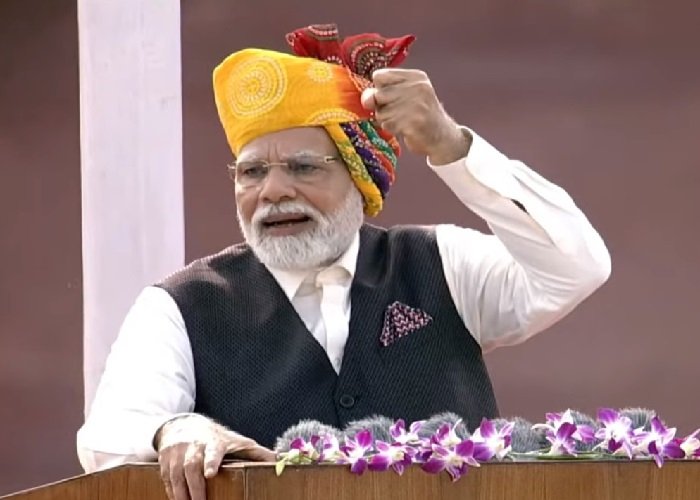Prime Minister Narendra Modi, during his Independence Day address, commended the Supreme Court’s significant step of translating operative parts of its judgments into regional languages. He highlighted the importance of regional languages and praised the apex court for its efforts to ensure that justice is accessible to citizens across the nation. Chief Justice of India DY Chandrachud, present at the event, expressed gratitude for the recognition with a humble gesture of folded hands.
PM Modi underscored, “I thank the Supreme Court. It has said that now the operative part of the judgment will be translated in the language the litigant speaks,” while accentuating the growing relevance of mother tongues in contemporary society.
In January 2023, the Supreme Court announced that it would translate judgments into four regional languages: Hindi, Tamil, Gujarati, and Odia. This translation initiative aims to enhance citizens’ access to justice, making legal decisions comprehensible to a broader audience.
Subsequently, during the Independence Day celebrations at the Supreme Court, Chief Justice DY Chandrachud acknowledged PM Modi’s remarks. He conveyed, “PM today in his Independence Day speech at Red Fort mentioned the efforts of the Supreme Court to translate the judgments in regional languages. Up to now, 9,423 judgments have been translated into regional languages.”
The practice of delivering legal judgments in regional languages has also been embraced by several high courts across the country, supplementing the existing use of English. Notably, in 2019, the Supreme Court had adopted a commendable initiative to release rulings in nine different regional languages, earning praise from former President Ram Nath Kovind.
PM Modi had previously praised Chief Justice Chandrachud’s efforts during an event in Mumbai. CJI Chandrachud had expressed the aspiration to provide translated copies of Supreme Court judgments in every Indian language, utilizing technology for widespread accessibility. PM Modi tweeted, “This is a laudatory thought, which will help many people, particularly youngsters,” along with a part of the video featuring CJI Chandrachud’s statement. The translation initiative aligns with the commitment to democratizing access to legal knowledge and promoting linguistic diversity.












